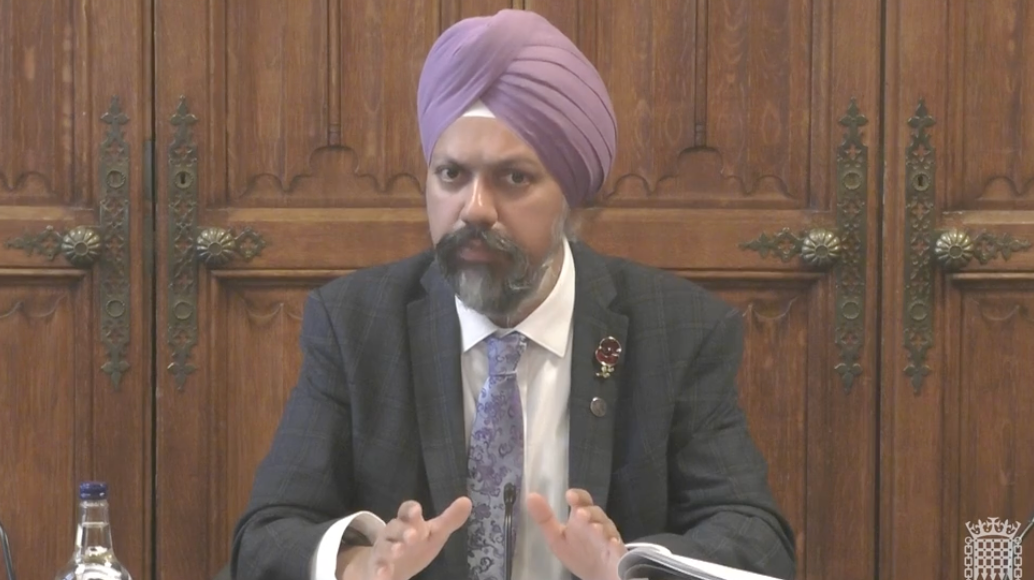Nearly two years ago, I was called into the Ministry of Defence and served with an unprecedented superinjunction – a legal order that stopped me, or anyone else, from revealing the details of a catastrophic data leak that had taken place in the heart of government.
That moment threw me into an 18-month secret legal battle at the High Court as media organisations sought to hold the government to account for how the leak had happened – and what was being done to rectify that calamitous mistake.
In July this year, after the gagging order was lifted by a High Court judge, we were finally able to tell the full story of how the MoD inadvertently breached the personal details of 18,700 applicants to the UK resettlement schemes, potentially putting thousands in danger, and how a secret relocation scheme was green-lit without the knowledge of the public or parliament.
An inquiry into what happened has been launched by the defence select committee, a group of cross-party MPs, and today I was called to be part of it – as one of the journalists who had been involved in the two-year legal saga.
As a journalist, I am more used to asking the questions and trying to investigate events, but today the tables were turned as I was called to answer queries about the resettlement schemes, the government’s secrecy, and the subsequent fallout along with my Fleet Street colleagues Sam Greenhill from the Daily Mail and Larisa Brown at The Times.
As the chair of the committee, Tan Dhesi MP, described, the inquiry has been launched “to get into the nuts and bolts of what had happened, what decisions had been made and by whom, in order to shed light on what has actually happened.”
He opened the session, saying: “When we discovered that there had been a superinjunction in place for almost two years, many of us were shocked, especially parliamentarians because we are often advised that parliament is sovereign and yet parliamentarians were kept in the dark”.

Over several sessions, MPs will now probe why the government felt the superinjunction was necessary and why it was maintained for so long, as well as consider the Afghan resettlement schemes themselves, and the impact on Afghans affected and not impacted by the breach.
Chair of the committee, Tan Dhesi, the Labour MP for Slough, praised journalists for our efforts to shed light on the issue, and lauded our “grit and determination in exposing this entire chapter where everybody was kept in the dark, including many of us parliamentarians”.
While attendees for future sessions are yet to be confirmed, MPs will hope to grill ministers and senior civil servants over what went wrong. As well as draw insight from those lawyers and caseworkers who have supported Afghans who are at risk.
Their investigations will run alongside another inquiry, led by the Intelligence and Security Committee – a group of security-cleared MPs who are able to scrutinise top-secret matters. Findings will then be drawn into final reports, reflecting on what can be learnt for the future.
While parliament can now probe what has gone wrong in the past, there are still ongoing questions about what is being done now to help those who have still been left behind. As I told the committee, journalists are hearing that a few Afghans have been evacuated to the UK in the past few months despite a pledge to honour the eligibility grants that have already been issued.
MPs who have tried to get answers from the MoD about the numbers arriving have been rebuffed, with officials citing operational security – something that has not stopped transparency in the past.
Concerns about a growing culture of secrecy at the MoD were raised by Conservative MP Jesse Norman, who told the session: “We have detected a change in this committee in the quality of information that we are getting from the MoD”.
Ms Brown, defence editor at The Times, explained that one of her MoD sources had told her that “the numbers have barely changed since the superinjunction has been lifted”.
As of October this year, there were an estimated 4,200 applicants and their family members who are eligible to come to the UK under the MoD’s resettlement scheme still awaiting relocation.
This issue goes to the heart of the superinjunction and shows there is still a significant lack of transparency around the safety of Afghans who applied for the resettlement scheme.
It is something we doggedly covered for two years – let’s hope the inquiry provides the impetus needed to bring those still waiting to safety.
Afghan data leak superinjunction left democracy in ‘deep freeze’, say journalists
One in 10 children in first year of primary school in England is obese
Stability AI largely wins UK court battle against Getty Images over copyright and trademark
Reeves puts Britain on notice of sweeping tax rises in Budget
Greta backs UK student who fears for his safety after visa sponsorship revoked
Mapped: The areas where childhood obesity levels are highest in England







